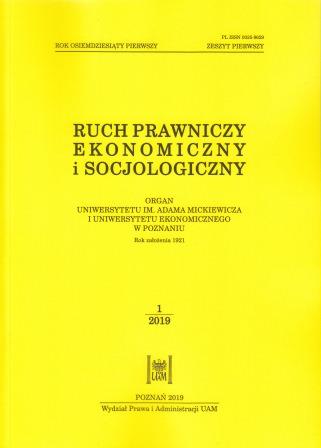Definicja i granice prawnej ochrony prywatności w epoce analityki big data
The definition and limits of data protection laws in the era of Big Data analytics
Author(s): Marcin RojszczakSubject(s): Civil Law, Human Rights and Humanitarian Law, ICT Information and Communications Technologies
Published by: Uniwersytet im. Adama Mickiewicza w Poznaniu
Keywords: right to privacy; personal data; Big Data; re-identification; special categories of data;
Summary/Abstract: More than one hundred years after the first definitions of the right to privacy, the content of this right and the limits of its protection are still being discussed and disputed in the doctrine. The protection of human rights tends to define privacy by determining an open list of protected values. At the same time, in data protection law the scope of regulation is determined by terms ‘personal data’ and ‘special categories of data’. The definition of these terms has remained unchanged for over thirty years. The division of vertical and horizontal intrusions in the area of privacy protection in cyberspace is no longer valid. The activities of public authorities and specialized entities such as data brokers have been increasingly complementing one another. Collecting vast amounts of data about hundreds of millions of users may lead to privacy intrusions not only of individuals, but also of entire societies. The purpose of this article is an attempt to determine whether the legal regulations already in force and being implemented, based on the definition of personal data adopted in the pre-Internet era, have the potential to effectively protect against the risks associated with modern data processing techniques such as Big Data. To achieve this goal, the most important features of Big Data are discussed, such as algorithmic knowledge building or incremental effect, and it is also explained how this technology allows legal restrictions related to the processing of different categories of personal data to be bypassed. In the summary, a postulate to develop regulations dedicated to regulating the market for the processing of large data sets is formulated.
Journal: Ruch Prawniczy, Ekonomiczny i Socjologiczny
- Issue Year: 81/2019
- Issue No: 1
- Page Range: 115-128
- Page Count: 14
- Language: Polish

